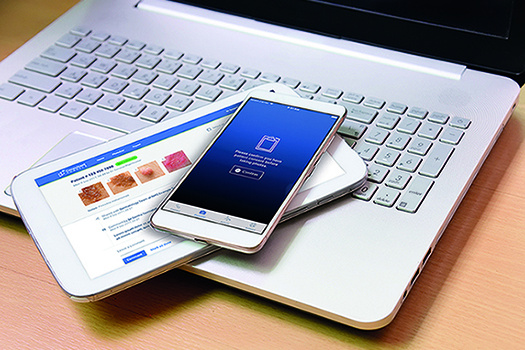Healthcare apps that triage patients should be put through a ‘fair test of clinical performance’ published by NHS England to ensure their safety, according to the Care Quality Commission.
In addition, the Department of Health and Social Care should look into whether ‘safety-netting’ advice should be available to the public about how to use symptom checkers, said the CQC.
The CQC made the recommendations as part of work to shape its approach to regulating healthcare apps.
It found digital triage tools are currently not fully clinically validated or tested by product regulators and discovered ‘there is great variation in their clinical performance’.
NHS England and other bodies should assess where people have been wrongly escalated, resulting in undue anxiety, as well as where tools have failed to address people’s ill health, said the CQC.
Meanwhile it concluded that members of the public use digital triage tools differently – with some treating them similar to a web search to understand symptoms, while others will follow the advice about care.
In a report on its work exploring how to regulate digital triage tools and apps, the CQC said: ‘We suspect that people are not clear about what they are using and how they should treat it.’
The CQC consulted with six technology providers as part of its work, including digital triage service E-consult, NHS 111’s online service, and video consultation provider DoctorLink.
DoctorLink chief executive Rupert Spiegelberg said a system of regulation was needed to ensure apps were trusted.
He said: ‘We welcome the regulations, we would like to see all medical apps tested in an independent audit.’
The CQC has published a total of five recommendations on how national bodies can work together to ensure apps and online tools are regulated.
In the past, some online GP providers have claimed their app’s clinical advice is as good as a GP’s. In 2018, Babylon’s GP at Hand app, which offers a symptom checker and video consultation service to NHS patients, claimed its chatbot advice is ‘on-par’ with family doctors.
An official review of GP at Hand was not tasked with assessing its safety and instead focussed on how the model and funding arrangements worked – though NHS England has previously said it is continuously evaluating the service.
A spokesperson for NHSX, the body representing digital transformation in the health service, said: ‘NHSX is working with NICE, Medicines and Healthcare products Regulatory Agency and other bodies to develop clear standards which prioritise patient safety while at the same time encouraging the development of new and effective digital health technology which can deliver benefits for patients and staff alike.
‘We always recommend the public use the NHS website or the 111 phone or online service when seeking health advice.’
The CQC’s five recommendations in full
Recommendation 1: The Department of Health and Social Care, NHS England/Improvement and NHSX should consider including complex digital health interventions such as digital triage in the scope of their work to develop commercial standards for IT-related contracting across the NHS.
Recommendation 2: NHSX and NHS England should work with NICE and NHS Digital to develop and publish the results of a fair test of clinical performance.
Recommendation 3: NICE and its commissioners should consider whether its accreditation scheme, or a similar initiative, should be reopened to support tech suppliers where they are developing clinical content.
Recommendation 4: The Department of Health and Social Care should consider whether there should be common safety-netting advice for the public for all symptom checkers and digital triage tools (even those that are not regulated as a medical device). Advice should clearly explain how to use the tools and confirm with the user whether they are happy to proceed before booking an appointment or to share the information they have provided with other health professionals.
Recommendation 5: NHS England, analytically advanced integrated care systems, research funding bodies and Health Data Research UK should consider how they can work in partnership with technology suppliers to help healthcare providers, researchers, and commissioners to make the most of the information from these tools to improve efficiency and outcomes for people.
Pulse October survey
Take our July 2025 survey to potentially win £1.000 worth of tokens












